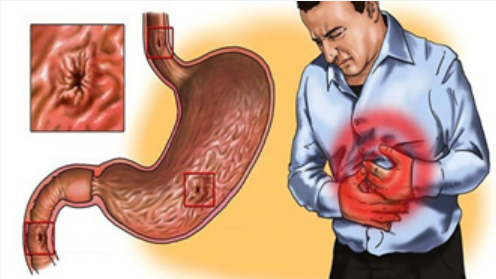Acidity and Gastritis: Understanding the Connection
Acidity and gastritis are two common digestive issues that often go hand in hand. If you suffer from acidity, you may also be at a higher risk of developing gastritis, and vice versa. In this blog, we’ll explore the connection between acidity and gastritis, their causes, and how you can manage them.
What is Acidity?
Acidity, also known as heartburn or acid reflux, is a condition in which the stomach produces too much acid. This excess acid can travel back up into the esophagus, causing a burning sensation in the chest or throat. This discomfort is often accompanied by a sour or bitter taste in the mouth.
What is Gastritis?
Gastritis is an inflammation of the lining of the stomach. This can result from a variety of causes, including an infection with the H. pylori bacteria, excessive alcohol consumption, or the regular use of nonsteroidal anti-inflammatory drugs (NSAIDs). When the stomach lining becomes inflamed, it is less able to produce the mucus that protects it from the digestive acids. This can lead to further irritation and pain.
The Connection between Acidity and Gastritis
Acidity and gastritis often go hand in hand because they both involve an overproduction of stomach acid. When the stomach produces too much acid, it can cause irritation and inflammation of the stomach lining, leading to gastritis. On the other hand, if you have gastritis, you may be more prone to experiencing acidity due to the inflammation and irritation of the stomach lining.
Managing Acidity and Gastritis
There are several steps you can take to manage both acidity and gastritis. Some of these include:
-
Making dietary changes: Avoiding spicy, fatty, or acidic foods can help to reduce the symptoms of both acidity and gastritis. Additionally, eating smaller, more frequent meals can help to reduce the amount of acid your stomach produces.
-
Quitting smoking and reducing alcohol consumption: Smoking and excessive alcohol consumption can both irritate the stomach lining and make the symptoms of acidity and gastritis worse.
-
Taking over-the-counter antacids: Antacids can help to neutralize the excess acid in your stomach, reducing the symptoms of acidity and gastritis.
-
Taking proton pump inhibitors (PPIs): PPIs are prescription medications that can help to reduce the amount of acid your stomach produces.
Conclusion
Acidity and gastritis are two closely related digestive issues that often occur together. Making changes to your diet, quitting smoking, and reducing alcohol consumption can all help to manage the symptoms of both conditions. Additionally, over-the-counter antacids and prescription PPIs can also be effective in reducing the symptoms of acidity and gastritis. If you are experiencing persistent symptoms, it is important to speak to your doctor for further evaluation and treatment.

